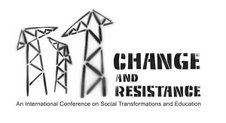The destinations of tourism are a matter of individual choices. Simultaneously, they are outcomes of (national) cultural politics and collective imagery of “other lands”. The interplay between one’s own “land” and “other lands” crystallizes the discourses of identity. The fashions replace some destinations with others thus the work on identity is carried out each time within new framework. Alternatively, different narratives are attached to the very same destination thus exerting different kind of influence on tourists’ identities.
In the paper based on a small scale qualitative research project I am going to address the issues of changing and ambiguous images of the post-communist “East” (e.g. Ukraine, Kyrgyzstan, Georgia) as a destination for young Polish tourists. The motivations of choosing post-communist countries as a tourism destination deserve attention and analysis. The narratives about travel routines as well as imagery preceding and accompanying the journey obtained in the course of in-depth unstructured interviews will be analyzed by means of discourse analysis. The memories of the past (tourists’ own as well as their families) will the studied. Moreover, the narratives about the journeys to the East will be contrasted with the narratives about the journeys to the West. I will present the analysis of bodily practices involved in traveling to the post-communist East. Special attention will be given to the images of the institutional and personal obstacles to traveling, as well as incentives to travel. Travel outcomes (in form of articles in travel magazines, diaries, web-sites) will be subject to analysis. The institutionalization and codification of the tourism to these destinations will also be an object of scrutiny.
The aim of the paper is to address the question of the construction of the Other and of the search of identities in the rapidly modernizing and Europeanizing (Westernizing) post-communist Poland. The images of the Self and the Other obtained and constructed during (repeated) journeys to the post-communist East of Poland will be the means of studying the processes of identity change as well as taping down the enclaves of resistance to change in the generation to which “real socialism” is still a personal yet fading memory.

No comments:
Post a Comment